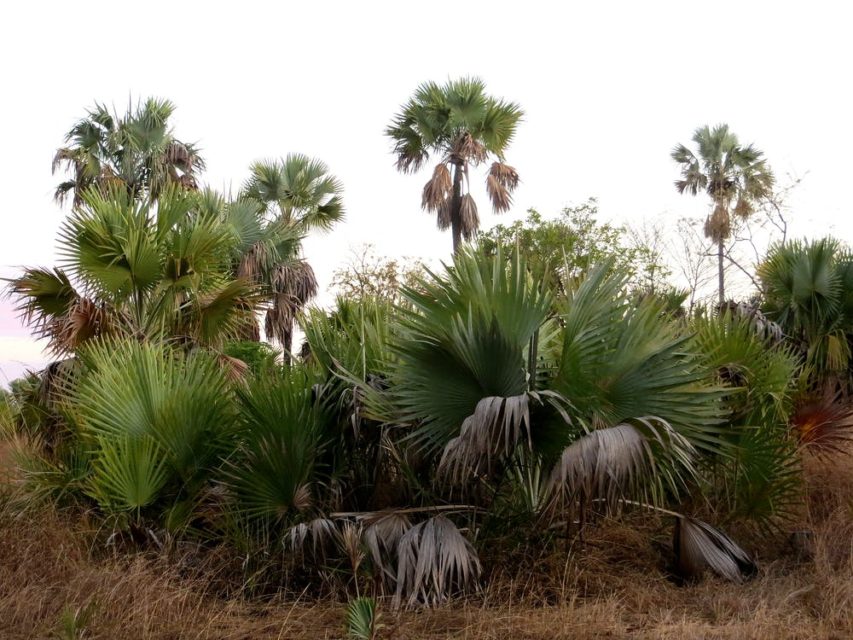Uninsulated Crimp
Published on 10 Apr 2013James May gives a straightforward guide to some of science’s big ideas, explaining everything from evolution and Einstein to engineering and chemistry.
April 2, 2019
James May’s Things You Need To Know – Series 2 – Episode 5 – Engineering (S02E05)
The not-so-ancient extinction of Madagascar’s megafauna
At The Conversation, Nick Scroxton, Laurie Godfrey, and Stephen Burns discuss their new theory on the megafauna extinction in Madagascar just over a thousand years ago:
Giant 10-foot-tall elephant birds, with eggs eight times larger than an ostrich’s. Sloth lemurs bigger than a panda, weighing in at 350 pounds. A puma-like predator called the giant fosa.
They sound like characters in a child’s fantasy book, but along with dozens of other species, they once really roamed the landscape of Madagascar. Then, after millions of years of evolution in the middle of the Indian Ocean, the populations crashed in just a couple of centuries.
Scientists know that over the past 40,000 years, most of Earth’s megafauna – that is, animals human-size or larger – have gone extinct. Woolly mammoths, sabre tooth tigers and countless others no longer roam the planet.
What’s remarkable about the megafaunal crash in Madagascar is that it occurred not tens of thousands of years ago but just over 1,000 years ago, between A.D. 700 and 1000. And while some small populations survived a while longer, the damage was done in a relatively short amount of time. Why?
Over the last three years, new investigations into climate and land use patterns, human genetic diversity on the island and the dating of hundreds of fossils have fundamentally changed scientists’ understanding of the human and natural history of Madagascar. As two paleoclimatologists and a paleontologist, we brought together this research with new evidence of megafaunal butchery. In doing so we’ve created a new theory of how, why and when these Malagasy megafauna went extinct.
Many of the forests that originally existed on Madagascar are now replaced by more open, human-modified landscapes, like this palm savanna at Anjohibe.
Laurie Godfrey, CC BY-ND
How Trains Changed China | Stuff That I Find Interesting
Jabzy
Published on 27 Mar 2016Thanks to Xios, Alan Haskayne, Lachlan Lindenmayer, William Crabb, Derpvic, Seth Reeves and all my other Patrons. If you want to help out – https://www.patreon.com/Jabzy?ty=h
Music by Derek Fiechter – https://www.youtube.com/channel/UCVRJ…
QotD: The legacy of the soixante-huitards
It is one of the theses of this lucid book that the generation of May 1968 — or at any rate its leaders — has arranged things pretty well for itself, though disastrously for everyone else. If it has not been outright hypocritical, it has at least been superbly opportunist. First it bought property and accumulated other assets while inflation raged, paying back its debts at a fraction of their original value with depreciated money; then, having got its hands on the assets, it arranged for an economic policy of low inflation except in the value of its own assets. Moreover, it also arranged the best possible conditions for its retirement, in many cases unfunded by investment and paid for by those unfortunate enough to have come after them. They will have to work much longer, and if ever they reach the age of retirement, which might recede before them like a mirage in the desert, it will be under conditions much less generous than those enjoyed by current retirees.
It matters little whether this was all part of a preconceived plan or things just fell out this way, for that is how things now are. The result is that what was always a class society is in the process of becoming a caste society, in which only children of the already well-off have a hope of owning their own house.
Theodore Dalrymple, “Beneath Paris”, Taki’s Magazine, 2017-01-07.




